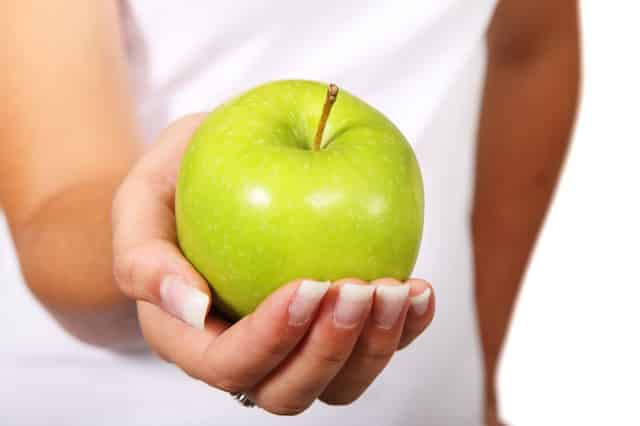Did You Know These 5 Foods Good for Your Teeth?
In the past, food was fairly universally seen as a threat to teeth, with sugary foods and drinks topping the list of worst offenders. Regular brushing and flossing, we were told, were all we could do to keep our teeth and gums as healthy as possible, as these activities removed the acid-producing plaque food causes to build up on our teeth.
However, a growing body of research is revealing that the relationship between food and our teeth is more complex than previously thought; just as certain foods can promote the growth and maintenance of healthy bones and organs, according to Dr. Christine D. Wu, a pediatric dentistry researcher at the University of Illinois in Chicago (USA), there are also so-called “functional foods” that promote oral health.
5 Foods for a Healthy Smile
Cheese: Cheese, like most dairy products, is a “base”, meaning that it helps to neutralize acids. Given the fact that it is not actually the plaque in our mouths or even the bacteria which feeds off of it that causes tooth decay, but rather the acids those bacteria produce, it’s little surprise that cheese helps to combat dental problems. Research published in the journal General Dentistry in 2015 revealed that teenagers who ate cheddar cheese had lower acid levels in their mouths than teenagers who did not regularly consume cheese. The study also demonstrated that those who ate sugar-free yogurt or drank a glass of milk experienced less profound benefits, making cheese the best choice out of all dairy products for creating a healthier mouth. This is likely due to the way that cheese tends to stick to the teeth, whereas milk and yogurt are more easily rinsed away.
Additionally, according to Dr. Wu, because cheese is lower in moisture than yogurt or milk, chewing it increases saliva production. “Like a river, saliva washes out some of the bacteria in the mouth,” she explained.
Raisins: While eating a sweet food such as raisins to enhance tooth health might seem counter-intuitive, raisins don’t contain sucrose, only natural fruit sugars (which are less damaging to tooth enamel than refined sugars). Likewise, raisins are a source of phytochemicals, which scientists now believe may help to kill cavity-causing bacteria and the bacteria which is most strongly associated with gum disease.
Crunchy fruits and vegetables (such as carrots, celery, and apples): Consuming fibrous, crunchy plant material is the second best thing to actually brushing your teeth, according to Dr. Wu. All the hard work we do while chowing down on tough fruits and vegetables “may disturb dental plaque, and serve as a cleansing mechanism.”
Almonds and leafy greens: Like dairy products, almonds and leafy greens are a source of calcium, and they often contain it in higher concentrations. As teeth are composed of largely the same material as bone, this added boost of calcium can go a long way toward keeping them strong. “Acidic foods and beverages may cause tiny lesions on tooth enamel,” Dr. Wu explains. “Calcium and phosphate help redeposit minerals back into those lesions.”
Because calcium strengthens bones, it also helps to create a stronger jaw, which in turn supports teeth, keeping them properly aligned and firmly implanted.
Sugarless gum: Not only does sugarless gum often come packaged with substances designed to support healthy teeth, the act of chewing both boosts saliva secretion and removes plaque from the teeth. Just be sure to chew in moderation, as relying too heavily on gum may wear down your teeth over time.
Cranberries: Cranberries contain polyphenols, substances which help to prevent plaque from sticking to teeth (which in turn helps to reduce the risk of cavities), says a study published in the journal Caries Research. Just be sure to avoid cranberry products which contain added sugar.
This post originally appeared on Star Dental’s Blog

